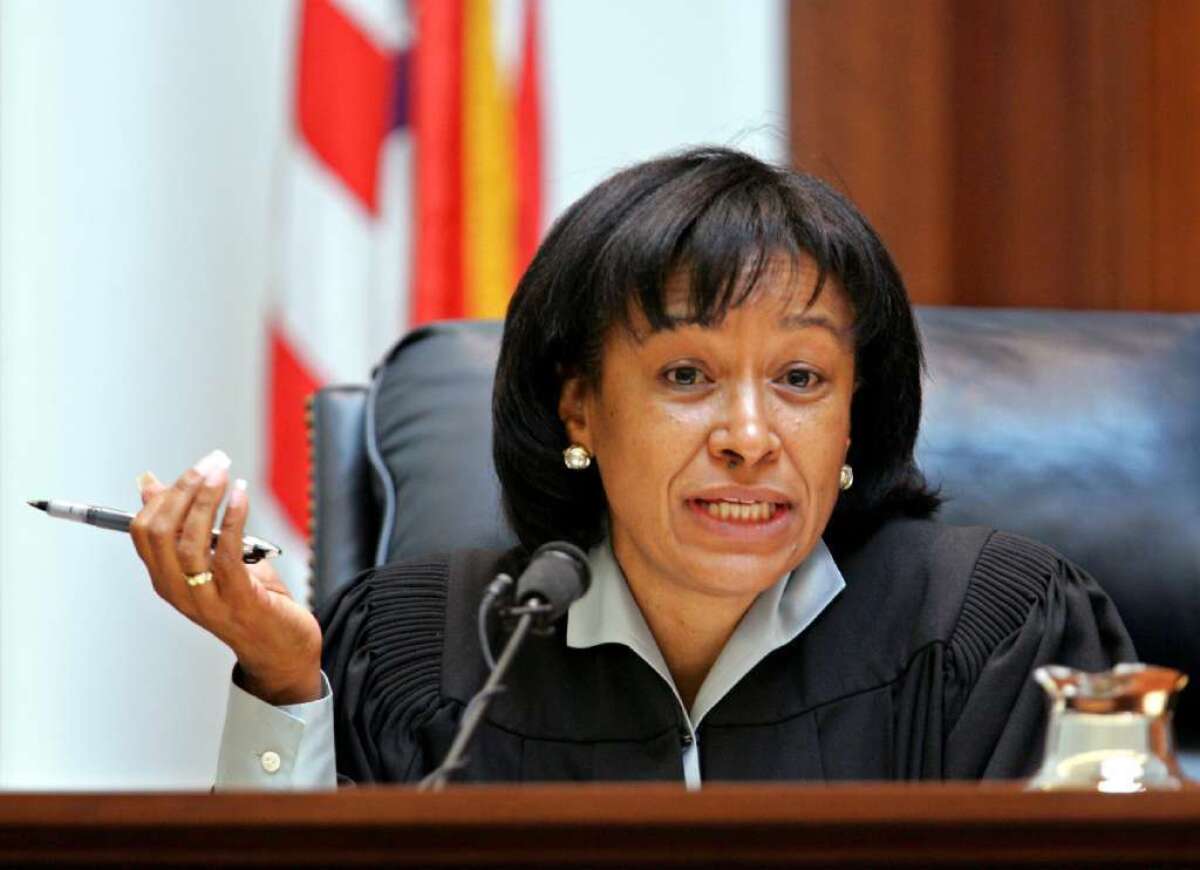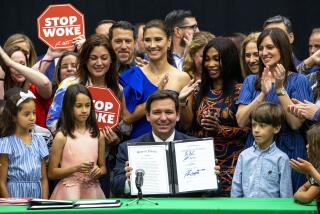Opinion: A judge liberates D.C. tour guides from regulation

A perennial question in discussions of the 1st Amendment is the often blurry distinction between speech and conduct. Burn your draft card as an antiwar protest and you have committed criminal conduct. Burn the American flag as a political protest and you’ve engaged in constitutionally protected “expressive conduct” — symbolic speech.
The constitutional analysis is further complicated by the Supreme Court’s discovery (or invention) of “commercial free speech,” which is entitled to some constitutional protection even though its overriding purpose is to make money in the real marketplace, not the metaphorical marketplace of ideas. (The joke among Supreme Court watchers is that some liberal justices don’t like commercial free speech because it’s commercial, and some conservatives don’t like it because it’s free speech.)
A recent decision by the U.S. Court of Appeals for the District of Columbia Circuit is an object lesson in the complexity of both the speech/conduct distinction and the difference between political and commercial speech.
In a lawsuit brought by the Institute of Justice, the court struck down a District of Columbia requirement that tour guides in the nation’s capital pass a 100-question quiz and pay $200 to be licensed. (A passing grade was 70 correct answers out of 100, which seems to allow for a lot of historical and geographical ignorance.)
The ruling was a victory for Bill Main and Tonia Edwards, a married couple who operate Segs in the City, which allows tourists to ride Segways through the capital while listening to the tour guides’ patter through radio earpieces.
The appeals court ruled the licensing scheme unconstitutional, in an opinion by Judge Janice Rogers Brown, a former California Supreme Court justice often mentioned as a possible Republican appointee to the U.S. Supreme Court (though at 65 she’s getting up there).
Citing the draft-card case, Brown said that a content-neutral regulation that burdens speech can pass muster only if it is “narrowly tailored to further a substantial government interest.” D.C.’s exam requirement for a tour-guide license flunked that test. The district might have a substantial interest in protecting tourists from ignorant or incompetent guides, Brown said, but evidence was lacking that the exam requirement “actually furthers the district’s interest in preventing the stated harms.”
Brown doesn’t treat the tour guides’ spiels as commercial speech. Nor does she accept the argument that government can regulate their travelogues in the way it regulates the professional speech/conduct of psychiatrists and lawyers. (The regulation of that sort of speech figured in a decision last year by the U.S. 9th Circuit Court of Appeals rejecting a free-speech challenge to a California law banning “talk therapy” designed to change the sexual orientation of teenagers.)
But Brown’s opinion may be most interesting not for its parsing of the paradoxes of speech versus conduct but for its ringing libertarian rhetoric. In dismissing the utility of the exam for weeding out incompetent tour guides, Brown offers the free market as a better way to separate the good guides from the bad — an analysis that could easily be extended to other sorts of regulations.
“Perhaps most fundamentally,” she asks, “what evidence suggests market forces are an inadequate defense to seedy, slothful tour guides? To state the obvious, Segs in the City, like any other company, already has strong incentives to provide a high-quality consumer experience — namely, the desire to stay in business and maximize a return on its capital investment.”
From her pen to the eyes of the next Republican president?
Follow Michael McGough on Twitter @MichaelMcGough3
More to Read
A cure for the common opinion
Get thought-provoking perspectives with our weekly newsletter.
You may occasionally receive promotional content from the Los Angeles Times.







